It was our generation’s Pearl Harbor. I wasn’t going to write about it because everybody else in the world is going to do “where I was stories.” To get THAT out of the way, I was in Cape. Mother said something about a building on fire in New York. I looked at the TV and thought, just like I had when I first saw the Alfred P. Murrah Federal Building in downtown Oklahoma City in flames on April 19, 1995, that it was a gas explosion. Soon, in both cases, we discovered a darker reason for the flames: terrorism.
The scramble to get home
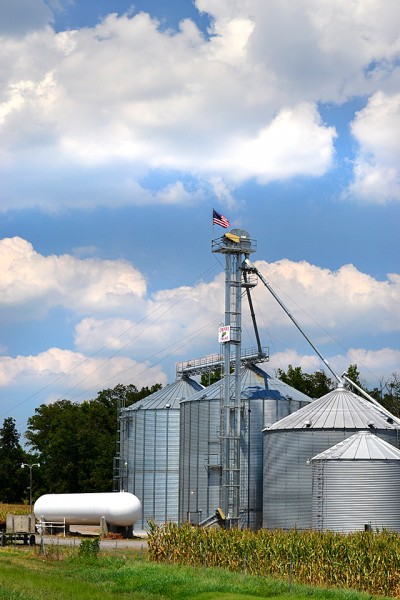 I called Wife Lila in West Palm Beach and we shared our fears.
I called Wife Lila in West Palm Beach and we shared our fears.
I hurried to a Cape gas station to fill up for a quick trip back to Florida. I wasn’t sure if gas was going to be available – or how much it was going to cost – for the return.
On the way south, I drove under an overpass near Nashville that had a massive American Flag hanging from it. I’ve never seen so many flags flying. I also noticed that drivers were more polite – they’d give you a wave to let you know it was OK to pull out and you’d acknowledge it in kind.
Where was the shared sacrifice?
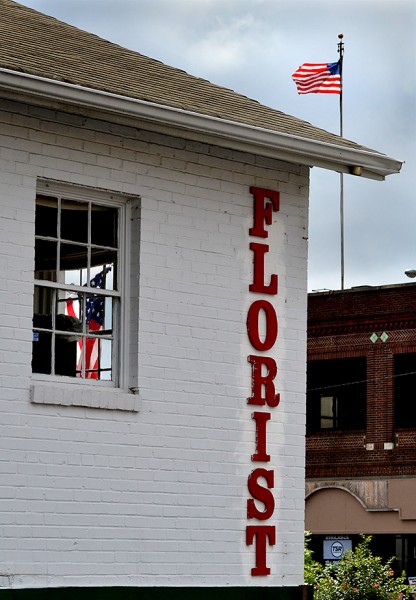 Of course, that only lasted for a short while. Instead of experiencing the shared sacrifices of World War II, we were told to go shopping. Instead of cutting back on energy consumption, we demonstrated our patriotism by hanging “Support our Troops” magnetic ribbons on the back of gas-guzzling SUVs. Instead of drafting a cross-section of American society, putting everybody at risk, we had a volunteer army that meant it was unlikely that you had any literal skin in the game. Politicians like Rudy Giuliani whose sentences, according to Joe Biden, consist of “a noun, a verb, and 9/11” wrapped themselves in the flag and rushed us into two wars for dubious reasons.
Of course, that only lasted for a short while. Instead of experiencing the shared sacrifices of World War II, we were told to go shopping. Instead of cutting back on energy consumption, we demonstrated our patriotism by hanging “Support our Troops” magnetic ribbons on the back of gas-guzzling SUVs. Instead of drafting a cross-section of American society, putting everybody at risk, we had a volunteer army that meant it was unlikely that you had any literal skin in the game. Politicians like Rudy Giuliani whose sentences, according to Joe Biden, consist of “a noun, a verb, and 9/11” wrapped themselves in the flag and rushed us into two wars for dubious reasons.
Osama Bin Laden, for the price of 19 airline tickets, managed to cripple our economy and made us give up freedoms and privacy. Mission accomplished.
Flags still thrill me
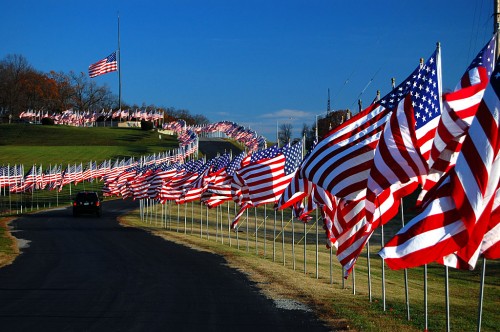 Still, as I travel across this great land, I’m still thrilled to see our Flag flying. These were taken at the North County Park, Overbey Farms outside Murray, Ky., the Jackson City Hall and a florist in Gastonia, NC. These are AMERICAN flags. They don’t belong to politicians and political parties and they should be used to unite, not divide us.
Still, as I travel across this great land, I’m still thrilled to see our Flag flying. These were taken at the North County Park, Overbey Farms outside Murray, Ky., the Jackson City Hall and a florist in Gastonia, NC. These are AMERICAN flags. They don’t belong to politicians and political parties and they should be used to unite, not divide us.
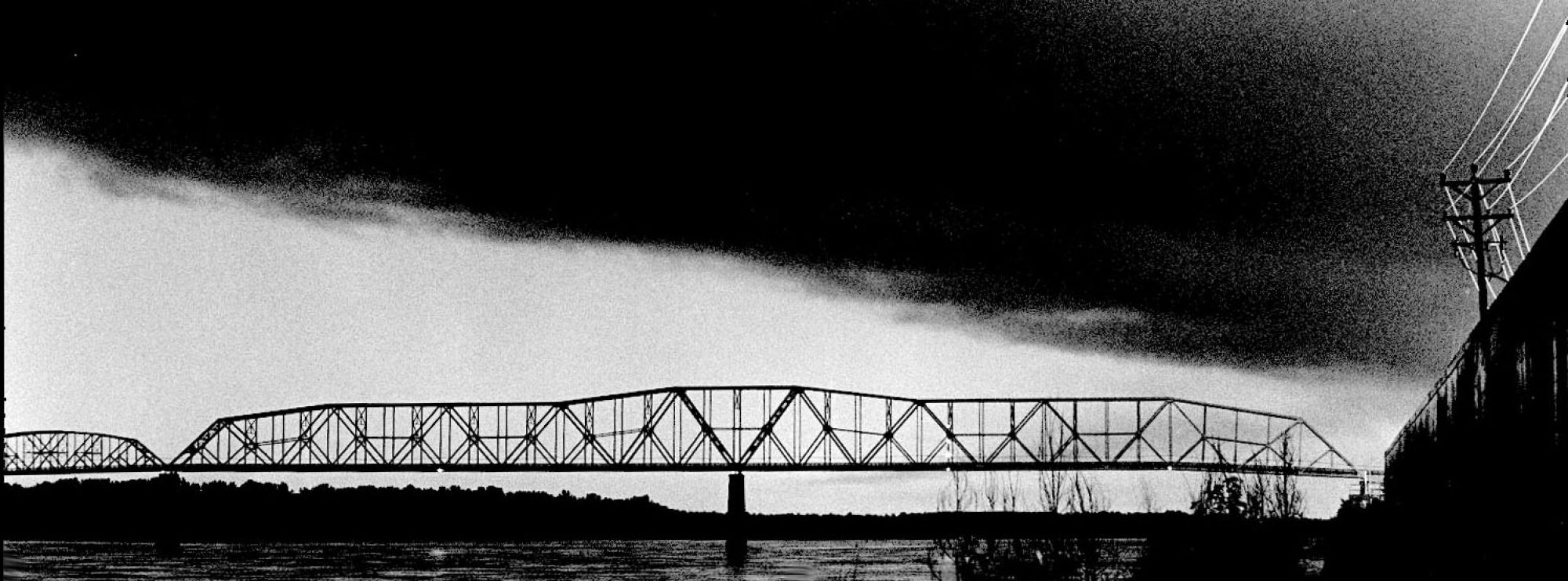
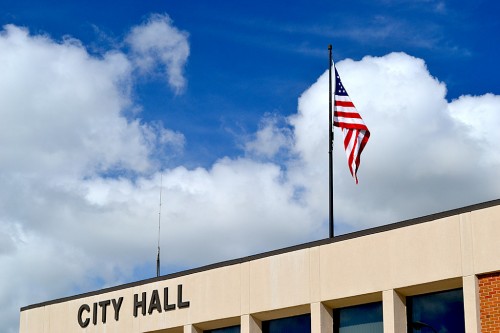
I remember learning of the 9/11 attacks from a salesman who came into the office on that morning, stating that 2 planes had crashed into the Twin Towers. He was the joke-a-minute type of guy, so I kept waiting for him to deliver the punchline. When none came, the stark reality began to set in. Before long, the TV news was once again filled with lingo like ‘the demilitarized zone’ and ‘ceasefire’, terms I recalled only too well from the Vietnam Era.
The tenets of the these wars-although 40 years apart- were very much the same: in Vietnam we were fighting the nameless, faceless specter of communism. In Iraq and Afghanistan, we were fighting the nameless, faceless specter of terrorism.
So why are the Iraq and Afghanistan veterans welcomed home as heroes, whereas the Vietnam veterans were largely ignored, and in some cases received with disdain? Is it because today’s returning veterans went voluntarily, while most who went to Vietnam were drafted? Or is it due to the surge in patriotism since September 11? Do we somehow feel more ‘victorious’ this time around, since we were able to take out Saddam and Osama?
I’m going to say that the difference is that young men were being drafted into an unpopular war, so there was more opposition to it. Add to the mix was the stories about gunning down women and children at My Lai, and it wasn’t hard to extend your displeasure with the way to the troops who were tasked with carrying it out.
It’s a little easier to drum up popular support for a war when you are actually attacked on your own soil. The problem was that we went after the wrong enemies in the wrong countries and tried to fight a conventional war in a place that has had a history of gobbling up armies that have tried to conquer it.
Opposition was muted because you’d get clobbered if you opposed the way, citizens weren’t asked to make any significant sacrifices, the cost of the way was carried “off the books,” and you, your kid and the neighbor’s kid weren’t been sent there involuntarily. An all-volunteer force is more effective than a bunch of disgruntled draftees looking for their time to be up, but it also keeps the risk from being shared across a wide spectrum of the population.